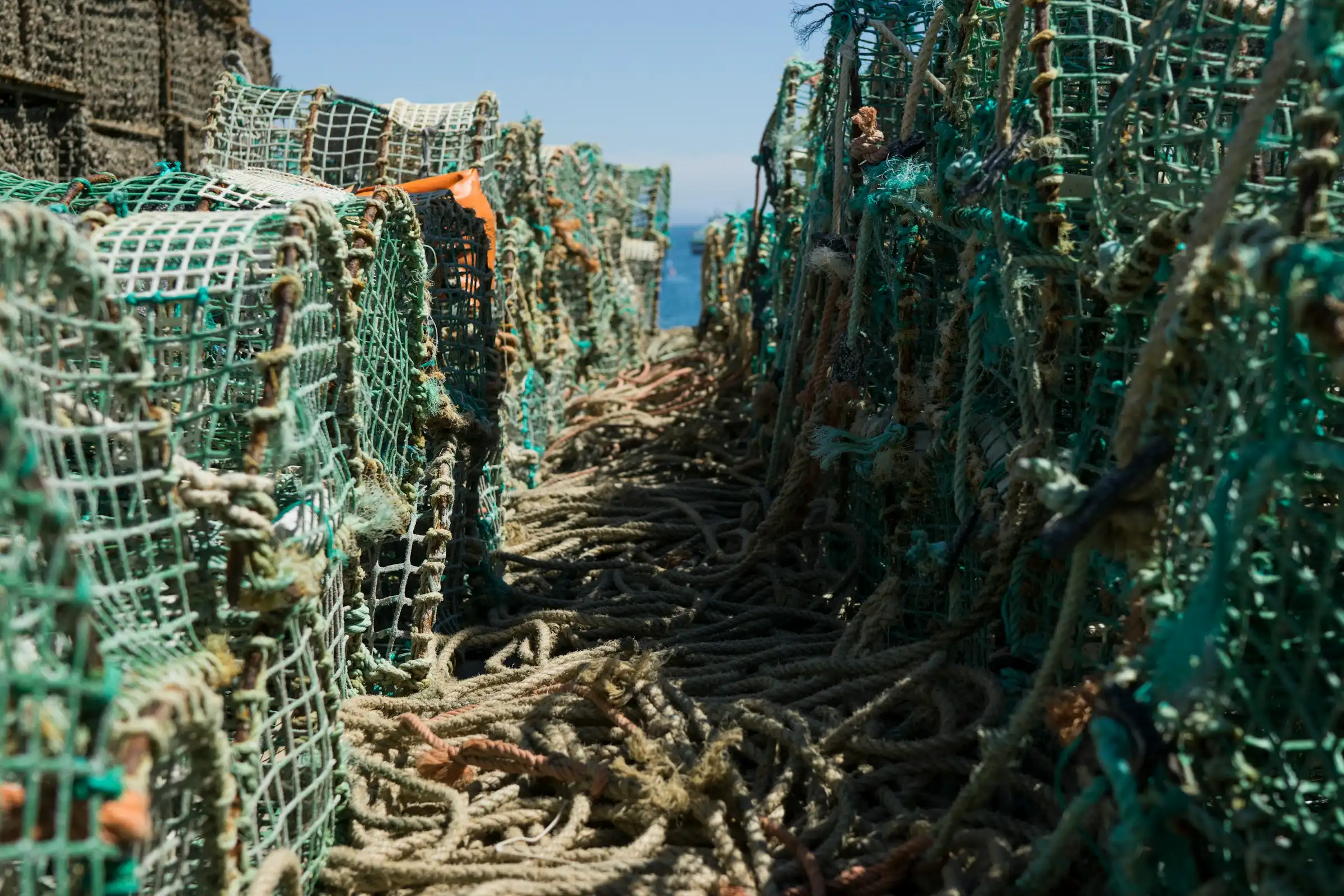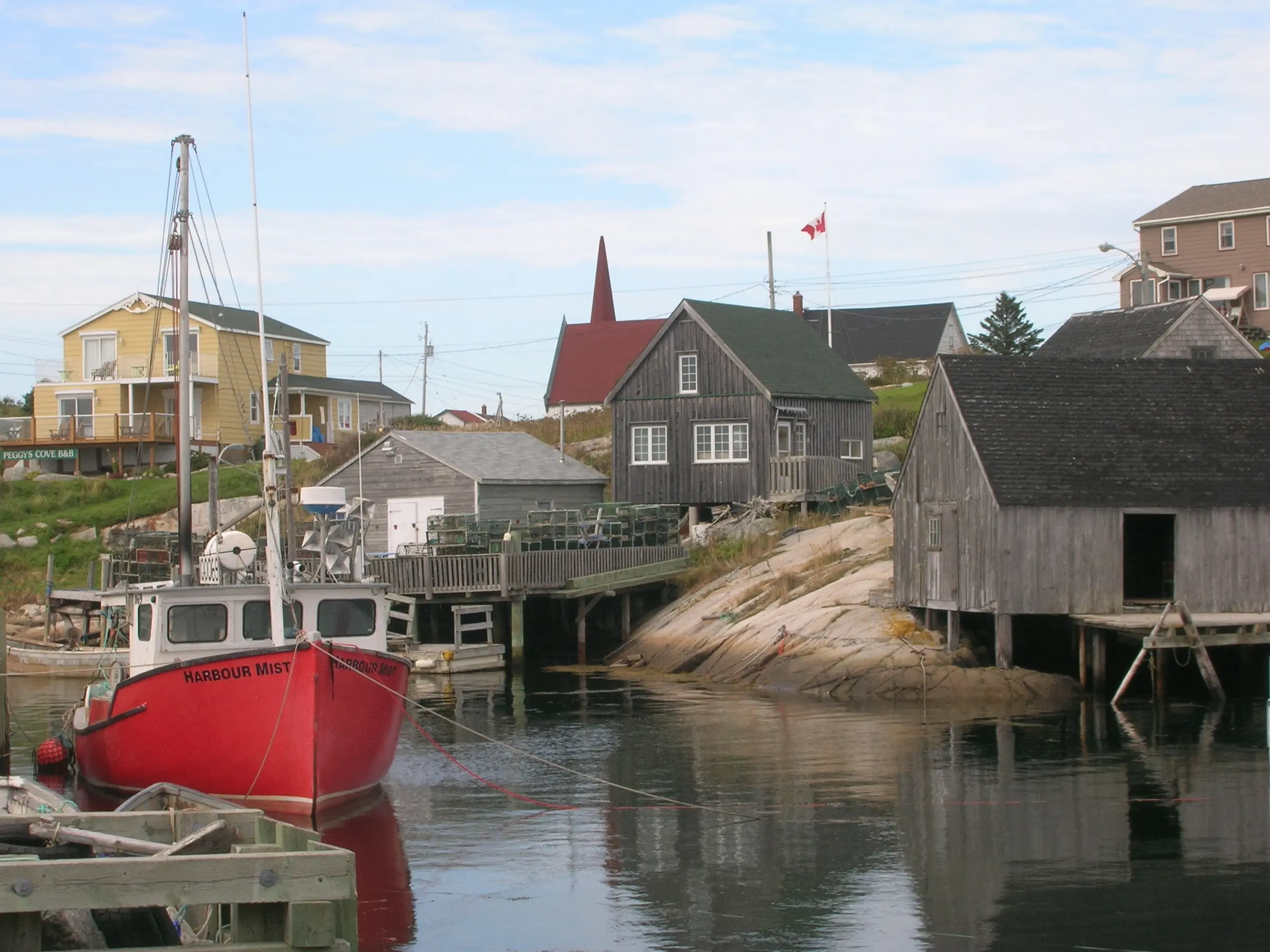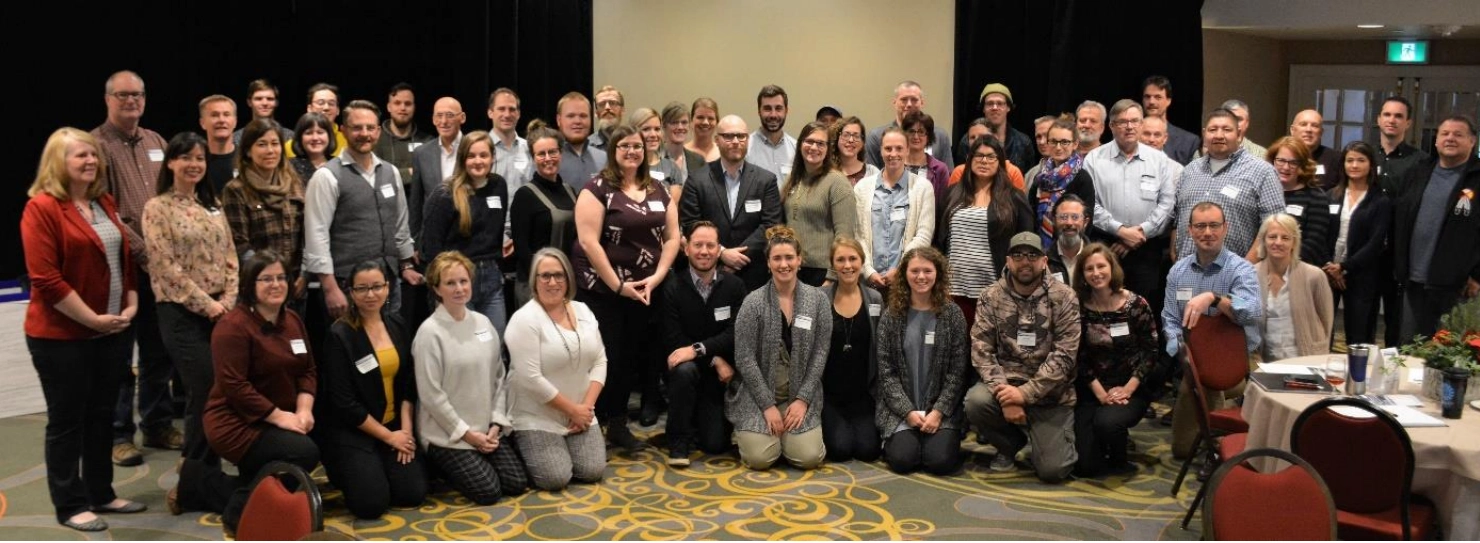
Supporting responsible marine waste management in Atlantic Canada and beyond.
The FGCAC works to support our fishing communities and vital ocean resources for future generations by developing sustainable solutions for end-of-life, abandoned, lost, and discarded fishing and aquaculture gear. We believe Atlantic Canada can become a global leader in this effort by 2030. And we believe that by working together, we can effectively chart a path towards more sustainable and responsible fishing and aquaculture industries.


Our Propellers: How we work
In pursuing our goals, there are three key pillars that serve as guiding principles, inspiring our work and forming the foundation in every endeavour we take.
Research, Innovation and Collaboration
We strive to create innovative solutions and make evidence-based decisions to tackle challenging problems. Collaboration with our network of partners—industry experts, fish harvesters, suppliers, and members—is key to achieving our goals.
Closing the loop for Sustainability
We are developing a closed-loop system for end-of-life fishing and aquaculture gear products that minimizes waste and costs. We have been piloting PVC-coated wire mesh, rope and netting and know it’s possible!
Positive Engagement and Communications
We strive to work together to incorporate all relevant experiences and expertise, help find better ways to collaborate, and encourage the sharing of local knowledge and lessons learned—so we can collectively solve the most pressing issues.


Our Story
The origins of FGCAC are anchored in the Clean Oceans Summits hosted by Clean Foundation. In 2018, the first summit took place in St. Andrews New Brunswick, fostering a collaborative environment to address marine waste challenges. Subsequently, the 2019 Clean Ocean Summit in Halifax led to the formation of the Fishing Gear Action Group. In 2020, following the announcement of Fisheries and Oceans Canada’s Ghost Gear Fund, the Fishing Gear Action Group formally incorporated under the Canada Not-for-profit Corporations Act as the Fishing Gear Coalition of Atlantic Canada (FGCAC). With over 50 dedicated members at the time, the group determined that one of the major needs was researching opportunities for end-of-life fishing gear management in Atlantic Canada and Québec. Today, the FGCAC remains dedicated to pursuing and evolving this important mission..


Our Staff
The FGCAC was built on like-minded, ambitious professionals working together, sharing responsibility, and leveraging their collective expertise to tackle unsolved marine waste problems. Continuing this historic and successful structure, Marquita Davis and Sonia Smith co-lead the FGCAC with support from the Members and guidance from the Board of Directors. Marquita leads the internal operations and Sonia leads the external relations.
Marquita Davis, Co-Executive Director & Project Manager
Marquita is a PMP® certified Project Manager, with over 10 years of experience leading various for-profit and not-for-profit projects, with over six years dedicated to solving marine waste challenges specifically.
She worked for Clean Foundation as the Programs and Executive Administration Lead, and was one of the key organizers of the Clean Ocean Summit—the event that led to the development of the Fishing Gear Coalition of Atlantic Canada (FGCAC). Marquita worked as Ashored Innovation’s Program Manager—leading partnered projects and managing stakeholder relations with ocean-related non-profits.
Marquita was one of the key founders of the FGCAC back in 2020 and has been an active member and staff ever since. She has been managing the End-of-Life Fishing Gear Management Project for over two years.
Sonia Smith, Co-Executive Director & Stakeholder Manager
Sonia has over 30 years of experience as a Stakeholder Manager. She began working with Harbour Authorities, fishers, Small Craft Harbours, and the Aquaculture Industry in 2014 when she took over the delivery of the Clean Foundation’s Ship-to-Shore Program. Sonia has an extensive background in the transportation and logistics industry.
Sonia works with the Atlantic Used Oil Management Association by providing the education and resources for the new Product Stewardship Used Oil Recycling and Management Program to the Harbour Authorities in Nova Scotia. Sonia now supports all three Maritime Provinces for the program.
Sonia has been one of the key founders and long-standing members of the FGCAC. She has been managing stakeholder relations for the End-of-Life Fishing Gear Management Project for over three years.

Our Board of Directors
The Board meets regularly to oversee the organizational management and strategic direction of the FGCAC.
Brad Skinner, Chair
Originally from Sydney, Nova Scotia, Brad joined Nova Scotia Environment (NSE) in 1980 and eventually moved to the NSE Amherst District Office in 1995. Brad has been working with Atlantic Used Oil Management Association since 2019, and is currently a Regional Representative for Nova Scotia, New Brunswick, and Prince Edward Island. He has been the Nova Scotia representative for the Product Care Paint Recycling program since 2020. Brad joined the FGCAC Board in 2022.
Sheryl Fink, Vice-Chair
Based in Ontario, Sheryl is the Director of Wildlife Campaigns for The International Fund for Animal Welfare (IFAW), and since 2019 has been providing support for marine plastic debris and ghost gear removal efforts in Newfoundland. She is also involved in IFAW’s work to protect the North Atlantic Right Whale, which involves looking at ways to reduce entanglement in fixed fishing gear, particularly the lobster and snow crab fisheries. Sheryl joined the FGCAC Board in 2022.
Darlene Norman-Brown, Director
Darlene brings her knowledge of fishing in the Bay of Fundy from generations of fishing heritage. She has been the Assistant Director for the Fundy North Fishermen’s Association in St. Andrews, and is the Lead on two FGCAC Action Teams—the Best Management Practices Group and the Ghost Gear Retrieval Strategy Group. She’s also a member of the Global Ghost Gear Initiative’s Catalyze and Replicate Solutions Working Group. Darlene joined the FGCAC Board in 2020.
Cameron Howlett, Director
Cam is a Commercial Director at Dominion Diving Ltd, a leading provider of marine services in Atlantic Canada. With over 14 years of global experience in technology, business development, and project management, he has the skills and expertise to create and implement commercial strategies that drive revenue growth, enhance profitability, and improve customer satisfaction. He is passionate about improving the climate and marine environment for future generations, and is committed to implementing sustainable practices in his work. Cam joined the FGCAC Board in 2024.
Lloyd d’Eon, Director
Lloyd’s background in the fishing industry covers over 30 years, during which time he has been a fishing supplies vendor with Vernon d’Eon Fishing Supplies Ltd. For the past 22 years, Lloyd has been the business’ General Manager, responsible for the oversight of eight retail and wholesale outlets, a manufacturing facility, and a zinc anode plant. Lloyd’s responsibilities see him leading 41 employees. Lloyd joined the FGCAC Board in 2022.